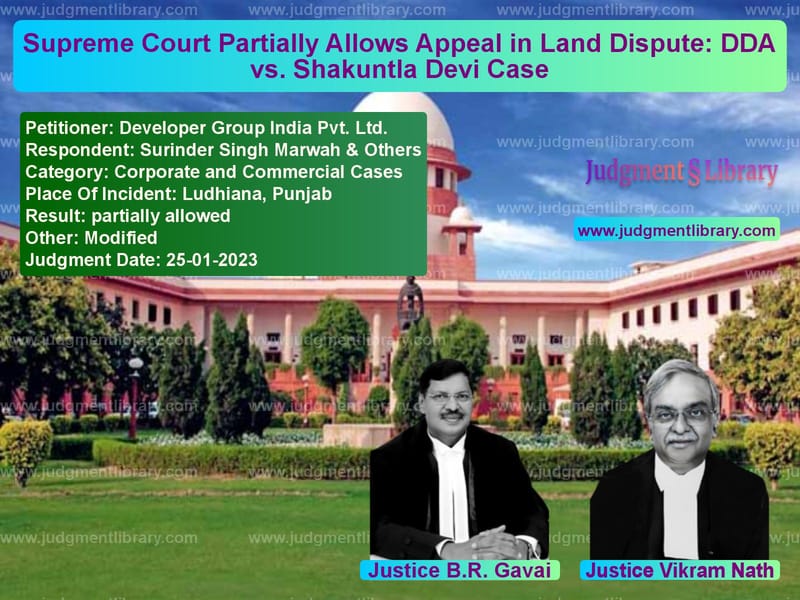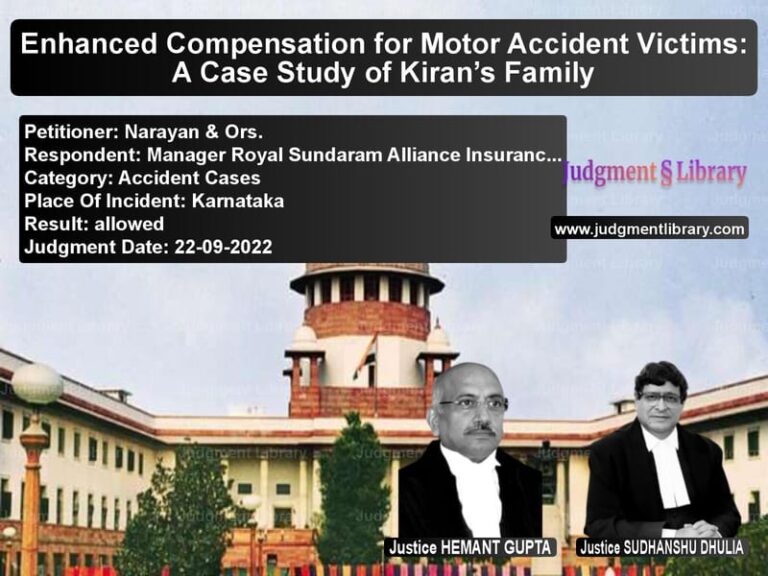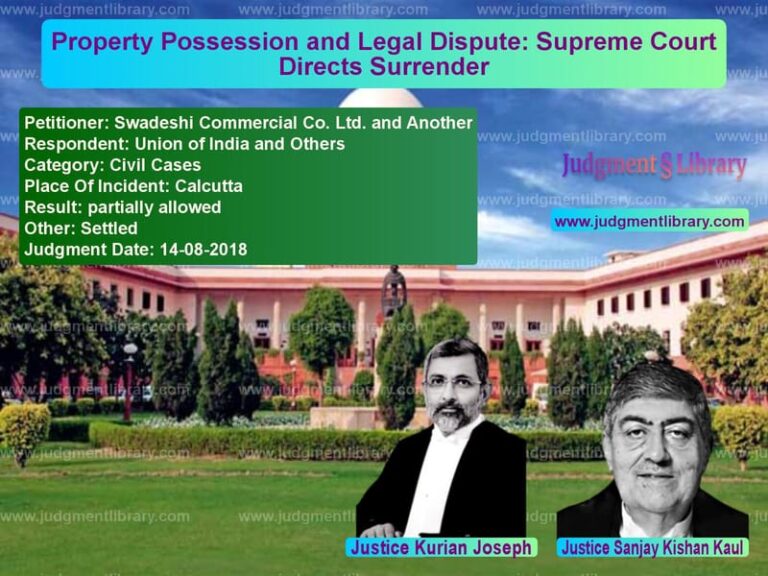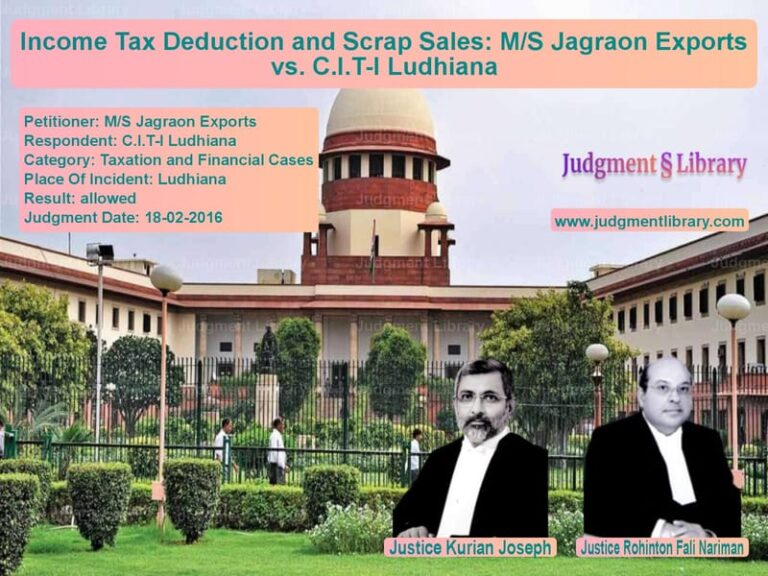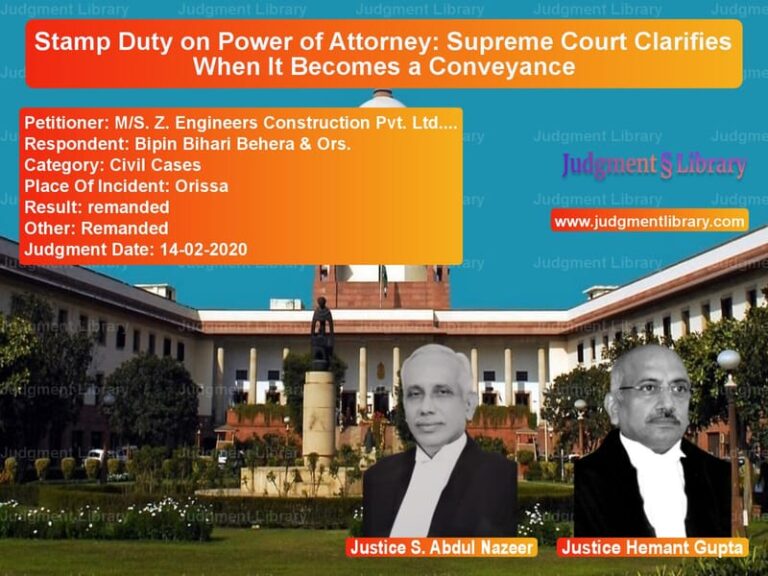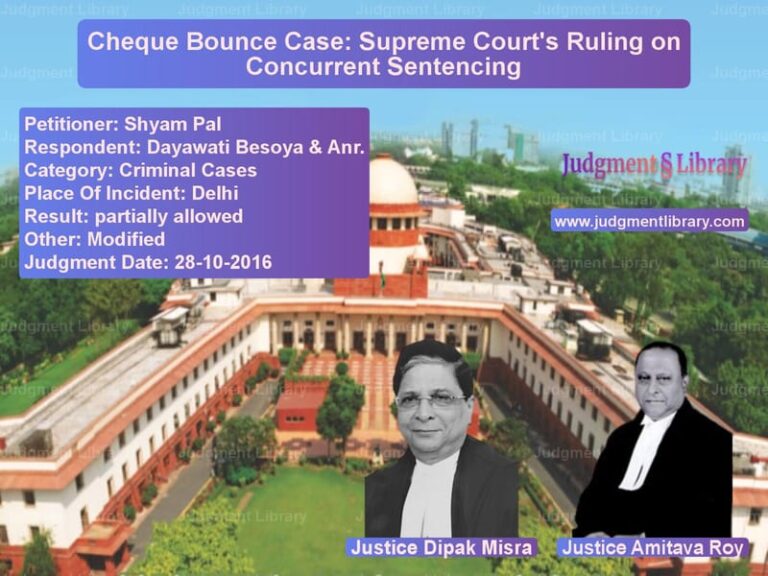Supreme Court Partially Allows Appeal in Land Dispute: DDA vs. Shakuntla Devi Case
The Supreme Court of India recently ruled in the case of Developer Group India Pvt. Ltd. vs. Surinder Singh Marwah & Others, addressing whether properties involved in liquidation proceedings could be transferred or alienated. The case focused on the application of Sections 339, 340, 342, and 347 of the Companies Act, 2013 and the rights of creditors in corporate insolvency matters.
Background of the Case
The dispute arose from a commercial real estate project named Festival City Mall in Ludhiana, Punjab, which faced financial troubles and stalled construction. Several investors, including the respondents, alleged mismanagement and financial irregularities. In 2009, the respondents filed a winding-up petition against the company responsible for the project.
During the liquidation proceedings, allegations emerged that funds meant for the project had been siphoned off into six land-owning companies. The respondents sought to restrain the transfer or sale of these properties, leading the Delhi High Court’s Division Bench to impose restrictions on transactions involving the disputed land.
Arguments by the Appellant (Developer Group India Pvt. Ltd.)
- The appellant contended that the Division Bench’s ruling was erroneous as they were neither involved in the financial mismanagement nor connected to the company under liquidation.
- They argued that the properties in question were lawfully acquired and that preventing their transfer caused significant financial losses.
- They emphasized that the High Court’s order failed to distinguish between the developer and the company under liquidation.
Arguments by the Respondents (Investors)
- The respondents alleged that the funds were siphoned from the original project company into the six land-owning companies.
- They contended that the appellant was benefitting from fraudulently acquired properties and that the High Court correctly imposed restrictions to prevent further transactions.
- They argued that lifting the restriction could allow key individuals involved in the financial mismanagement to escape liability.
Supreme Court’s Observations
- “While the claim of fraud requires further investigation, a blanket order restricting property transactions is excessive.”
- “The interests of investors and creditors should be protected through appropriate safeguards rather than halting legitimate commercial transactions.”
- “The High Court should have considered alternative solutions, such as requiring undertakings from the appellant instead of stalling the entire project.”
Final Judgment
- The Supreme Court partially allowed the appeal and modified the High Court’s order.
- The restriction on property transactions was lifted, but the appellant was directed to provide a formal undertaking that they would not create third-party rights over a specific portion of the land.
- The High Court was instructed to expedite the liquidation proceedings and ensure investor claims were addressed.
Legal Precedents Considered
- Usha Ananthasubramanian vs. Union of India (2020): Clarified that insolvency proceedings should protect creditors while balancing commercial interests.
- Swiss Ribbons Pvt. Ltd. vs. Union of India (2019): Highlighted the need for procedural fairness in corporate insolvency resolutions.
- Rajendra K. Bhutta vs. Maharashtra Housing and Area Development Authority (2020): Established that liquidation processes should not unnecessarily disrupt viable projects.
Implications of the Judgment
- This ruling prevents unnecessary interference in commercial real estate transactions while ensuring investor protection.
- The decision emphasizes that liquidation courts must balance competing interests instead of issuing broad prohibitions.
- The judgment provides clarity on the role of related parties in insolvency proceedings and prevents undue restrictions on third parties.
Conclusion
The Supreme Court’s ruling establishes that property transactions should not be arbitrarily restricted in liquidation proceedings unless direct involvement in fraudulent activities is established. By partially allowing the appeal, the Court ensured that investor claims were safeguarded while enabling commercial development to continue. This ruling will influence future insolvency and land dispute cases involving real estate projects.
Petitioner Name: Developer Group India Pvt. Ltd..Respondent Name: Surinder Singh Marwah & Others.Judgment By: Justice B.R. Gavai, Justice Vikram Nath.Place Of Incident: Ludhiana, Punjab.Judgment Date: 25-01-2023.
Don’t miss out on the full details! Download the complete judgment in PDF format below and gain valuable insights instantly!
Download Judgment: developer-group-indi-vs-surinder-singh-marwa-supreme-court-of-india-judgment-dated-25-01-2023.pdf
Directly Download Judgment: Directly download this Judgment
See all petitions in Bankruptcy and Insolvency
See all petitions in Company Law
See all petitions in Judgment by B R Gavai
See all petitions in Judgment by Vikram Nath
See all petitions in partially allowed
See all petitions in Modified
See all petitions in supreme court of India judgments January 2023
See all petitions in 2023 judgments
See all posts in Corporate and Commercial Cases Category
See all allowed petitions in Corporate and Commercial Cases Category
See all Dismissed petitions in Corporate and Commercial Cases Category
See all partially allowed petitions in Corporate and Commercial Cases Category

